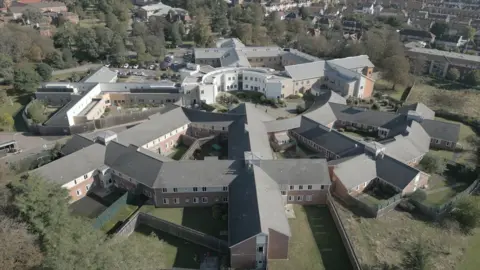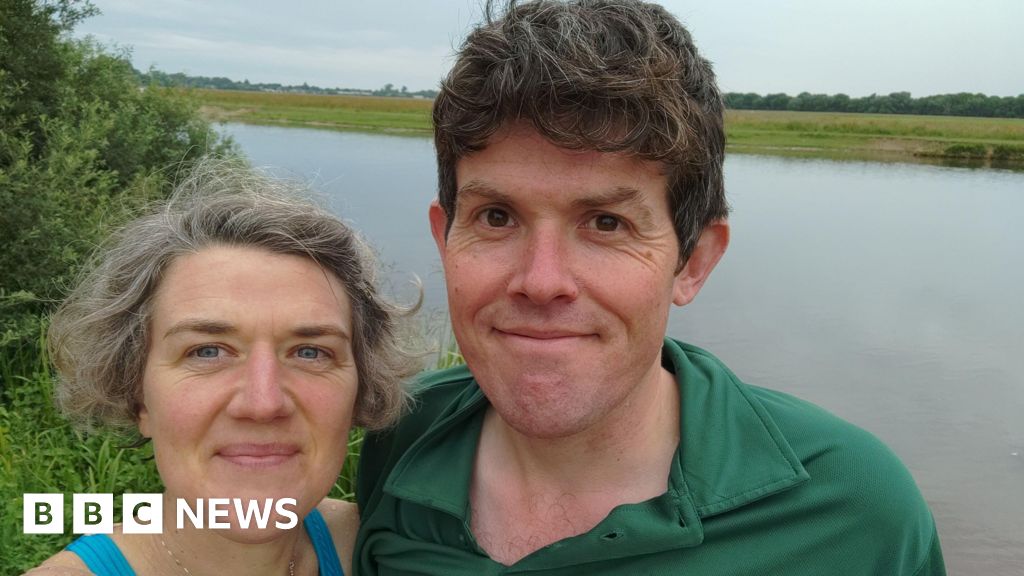Alison Holt,Social affairs editor and James Melley,senior producer

 Family handout
Family handout
Alice Figueiredo's family hoped lessons would be learned following their 22-year-old daughter's death
Warning: This article contains upsetting details and references to serious self-harm and death
Just four months after a young woman died in a London mental health unit, another patient tried to harm herself in startlingly similar circumstances, leaked documents seen by the BBC show.
Alice Figueiredo, a patient at Goodmayes Hospital, which is run by North East London Mental Health Trust (NELFT), attempted to harm herself using plastic or bin bags on 18 occasions, mostly taking them from the same shared toilet. On the 19th occasion, in July 2015, she managed to take her own life.
Just four months later, in November 2015, another young woman also on Hepworth ward attempted to harm herself using a bin bag. She survived.
Mental health campaigners say it suggests a worrying failure to learn from tragedies.
"It's shocking and distressing that this was still going on four months after Alice died," says Jane Figueiredo, Alice's mother. "The bin bags could and should definitely have been removed, but instead patients continued to be put at unnecessary risk."
NELFT says all bin bags have been removed and "it is committed to learning from every incident and continuously improving" the care it provides.
NELFT and former ward manager Benjamin Aninakwa are due to be sentenced this week after an Old Bailey jury concluded they had not done enough to keep 22-year-old Alice Figueiredo safe.
The BBC has spoken to former NELFT patients, families and ex-staff who have experience of the Trust's community and hospital services over the ten years since Alice's death.
They raise concerns about poor management, record-keeping, risk assessments and staff shortages stretching over that decade.
An email, which gives details of the November 2015 incident, was submitted to an internal inquiry commissioned by the trust after Alice's parents complained about the care she had received.
The inquiry's report, which has been seen by the BBC, has never been made public.


Hepworth ward offered inpatient mental health care for women at Goodmayes Hospital
"The similarities between this young woman and [Alice Figueiredo] are startling in terms of presentation, age range, background," the email said.
It goes on to say while it appears there has been "some learning" since Alice's death, there was "significant evidence" that not all incidents were being properly reported.
The hospital used an NHS risk management system called Datix where incidents should be logged on the system to help identify risks and patterns of behaviour.
The report says during the time Alice was on the ward there were 81 incidents or near misses that met the criteria for being reported via Datix, but just 14 (17.2%) were logged on the system.
In the November case, there was also significant under-reporting. The report suggests that of 45 self-harm events involving the unidentified young woman, 27 do not appear on the risk management system, including the attempt to harm herself using a bin bag.
The general lack of recording on the ward meant "opportunities to safely manage patients were missed", the inquiry found.
NELFT says it has removed plastic bags from wards in line with national guidance, and improved record-keeping and case management.
Overall, the internal report paints a picture of a ward where there were very sick patients, staff shortages - particularly of nurses - and a poor relationship between ward manager Benjamin Aninakwa and the consultant psychiatrist.
The report also says 100% of the support workers assigned to observe Alice one to one were temporary staff.
Brian Dow, from the mental health charity Rethink, says the document shows the unit did not act quickly enough after Alice's death to protect other patients.
"Lessons should be learned, and you should not expect to see a repetition of the same risks and the same dangers just weeks afterwards," he said.
"You need to have a culture of openness and transparency so that you can learn from the mistakes."

 Family handout
Family handout
Alice befriended other patients while on Hepworth ward
"Jenny", not her real name, was a patient on Hepworth ward at the same time as Alice. They became close friends. She says rather than an open and transparent culture on the ward, the atmosphere felt difficult and intimidating to her.
She shared the statement she had made to police investigating Alice's death with the BBC. In it she remembers how Alice helped her cope.
"She used to wake me up every morning on Hepworth ward with a big hug," she says.
She describes how staff meant to be looking after them were often not doing the necessary checks or observations.
"On countless occasions I witnessed Alice asking to speak to members of staff who were supposed to be doing observations on her but were instead busy on their phones," she wrote.
She also told police that observation records detailing what patients had been doing, which are important in giving clinicians a sense of how that person is coping, were often falsified.
Jenny left Goodmayes Hospital before Alice died. She is now living in her own home with support in the community, although she still misses her friend.
The BBC has previously highlighted repeated criticisms of the trust by coroners, with the most recent concerns being raised in May 2025 following the death of a 37-year-old man under the care of NELFT's community-based team.
The most common criticisms are about the poor quality of record-keeping, risk assessments, risk management and care planning. Staff shortages and poor communication are also highlighted in a number of reports over the last decade.
Former staff who have spoken to the BBC have raised similar concerns.
Mark New was a senior support worker in the trust's community mental health team. He says it was a good place to work for most of the 15 years he was there, but things deteriorated to such an extent that he resigned earlier this year.
He says mandatory medical and care management reviews were not always happening, leaving some patients' conditions untreated, and some "were languishing in crisis for weeks… for months".
"All of this was being fed back to staff in charge, but it wasn't really being acknowledged," he says.
The trust operated a traffic light system on patient files to indicate their level of need and the risk they posed to themselves or others. Mr New says these files were often not filled out accurately or updated properly, including risk assessments.
Mr New remembers one client who was flagged green or low risk. He later discovered they had recently been picked up by police following allegations of "assault and hostage-taking with a bladed weapon".
The trust says it is sorry if any staff member felt unsupported or unsafe, and acknowledges that "workforce pressures have historically impacted the quality of care across the NHS." It says it has made substantial investment in recruiting and retaining staff.
"We need a health system that prevents people ending up in crisis," says Brian Dow from Rethink. "Too often we hear stories of people escalating unnecessarily."
Alice Figueiredo's mother, Jane, and stepfather, Max, have spent the last decade seeking justice and transparency over what happened to her.
"We should be able to expect safe, compassionate and diligent care for some of the most vulnerable people in society," says Jane. "Urgent action is needed, not just at NELFT, but in all mental health hospitals, wards and services around the country."
NELFT says it is sorry for Alice's death and it remains "dedicated to ensuring that Alice's memory continues to inspire positive change" and will "continue to work tirelessly to deliver safer, more compassionate care for the communities we serve".
The BBC understands that Benjamin Aninakwa, who still works at NELFT, is appealing against his conviction for failure to take reasonable care for the health and safety of others affected by acts or omissions at work. He was acquitted of gross negligence manslaughter.
If you are suffering distress or despair, details of help and support in the UK are available at BBC Action Line.
.png)
 3 hours ago
1
3 hours ago
1








 English (US) ·
English (US) ·